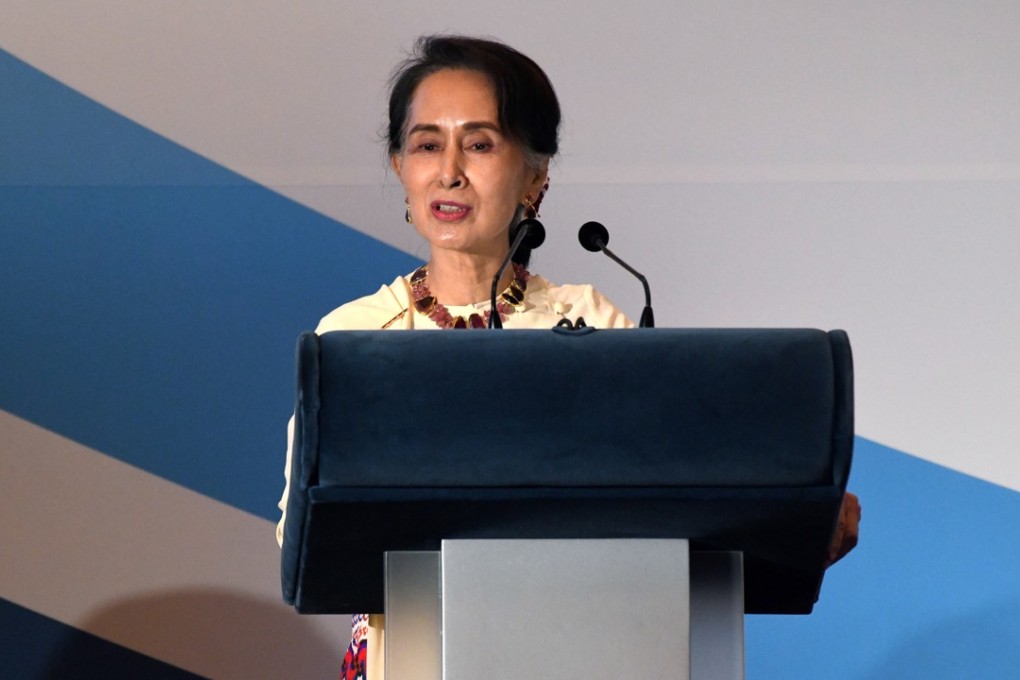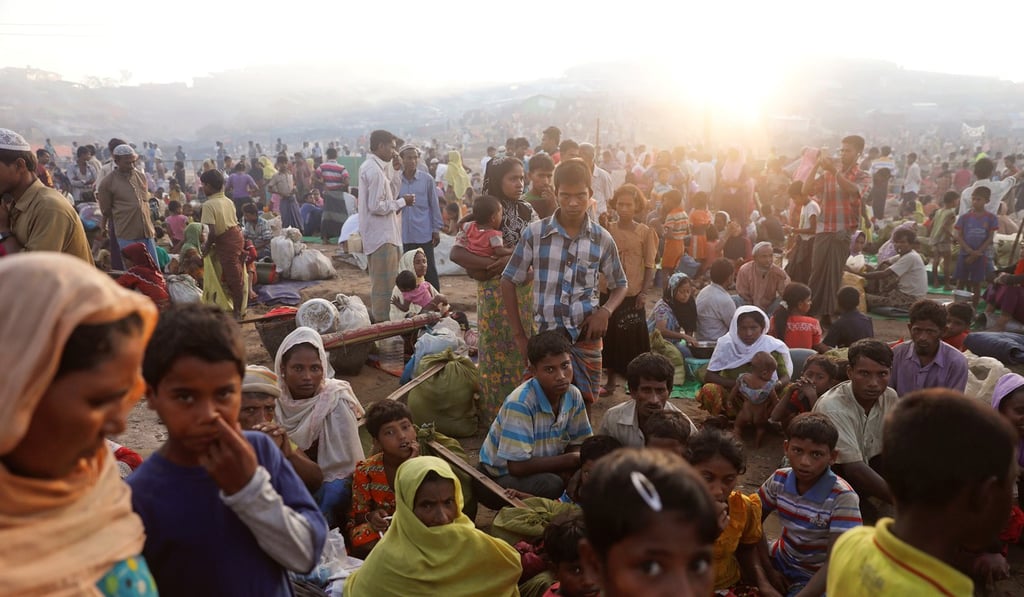Rohingya crisis: terrorism may spread beyond Myanmar, Suu Kyi warns
Myanmar’s unofficial leader uses Singapore lecture to warn of ‘grave consequences’ for countries in the region – and defends her government’s handling of the situation in Rakhine

She said unless the security challenge was addressed, the risk of violence in the country would remain.
“The danger of terrorist activities, which was the initial cause of events leading to the humanitarian crisis in Rakhine, remains real and present today,” she said, in a lecture in Singapore on Tuesday.
“Unless this security challenge is addressed the risk of inter-communal violence will remain. It is a threat that could have grave consequences, not just for Myanmar but also for other countries in our region and beyond. Terrorism should not be condoned in any form for any reason.”

Nearly 700,000 Rohingya, most of them Muslims, have been displaced from Rakhine since the military began a crackdown on militants last August. Most have crossed the border into Bangladesh, joining the 200,000 refugees already there.